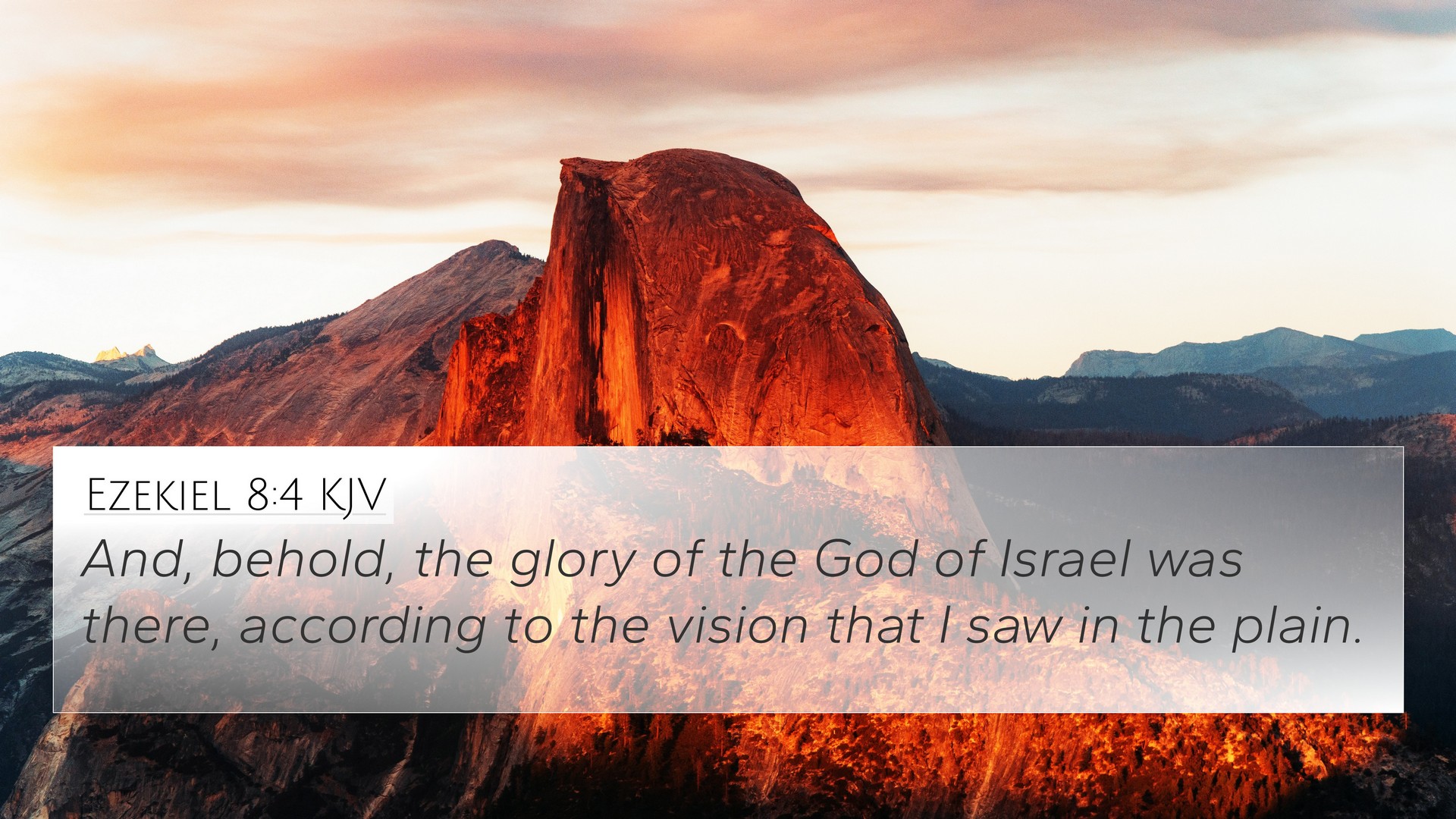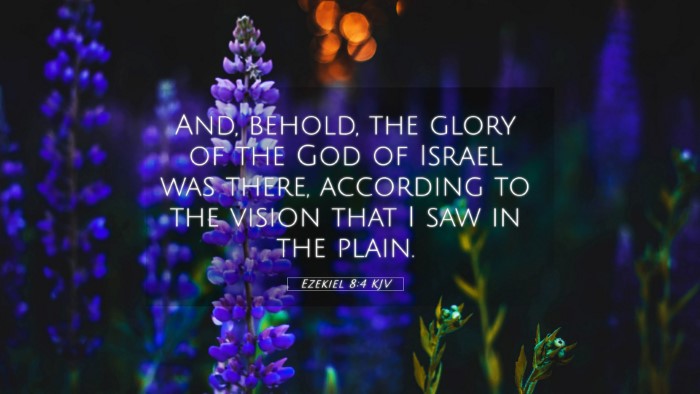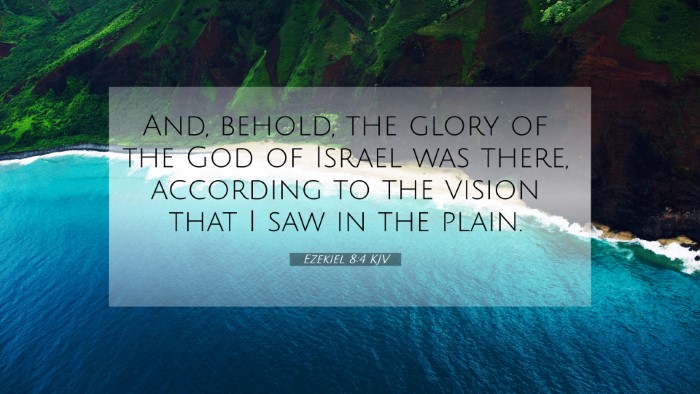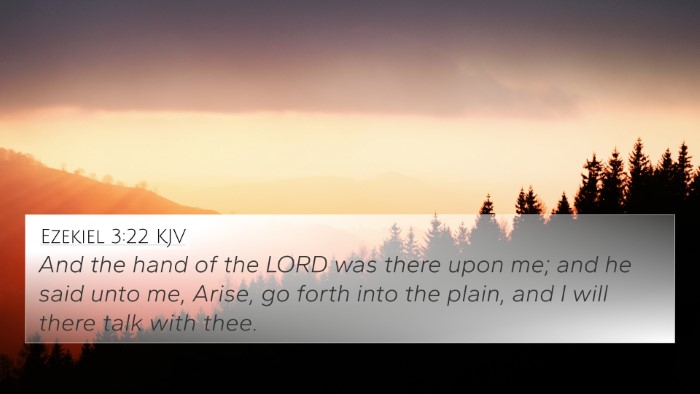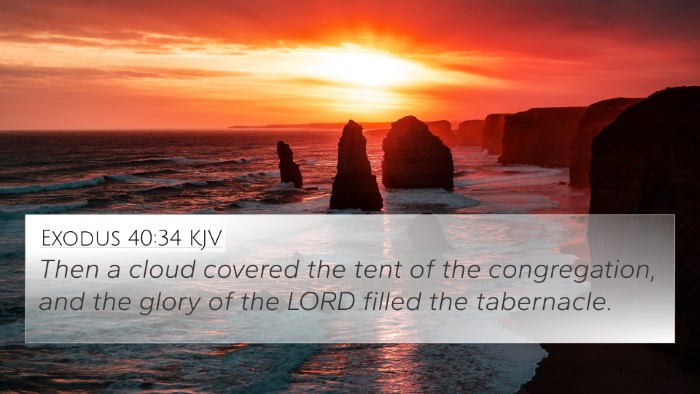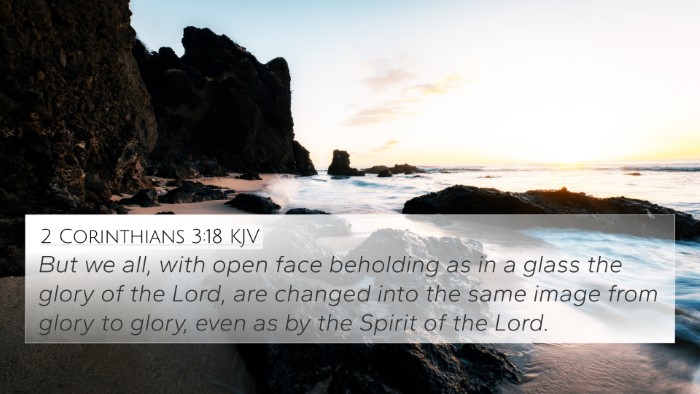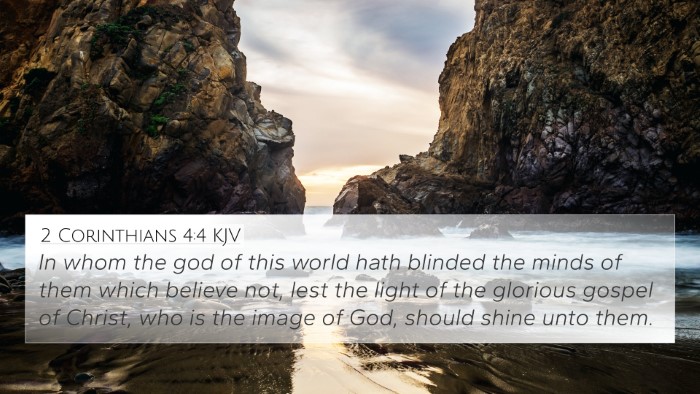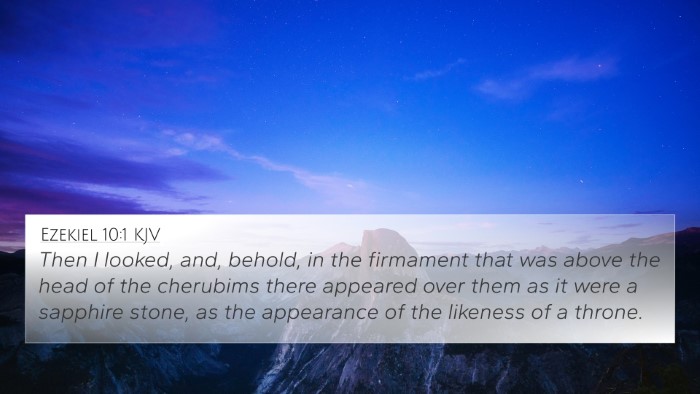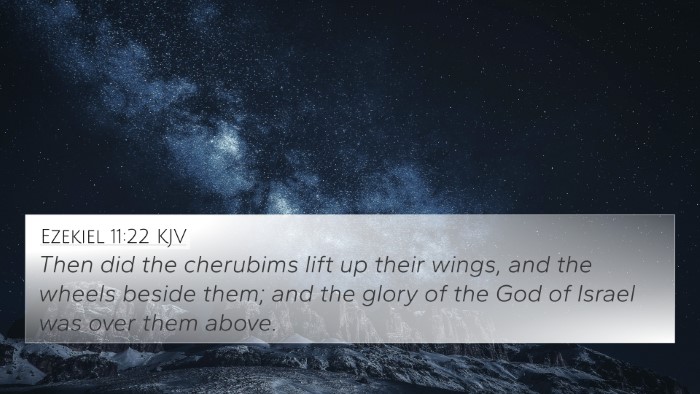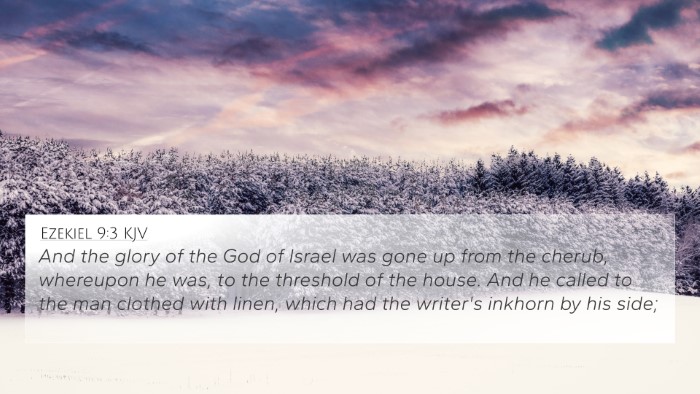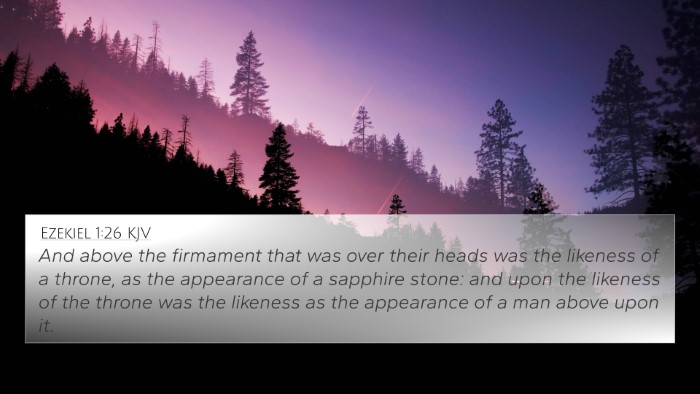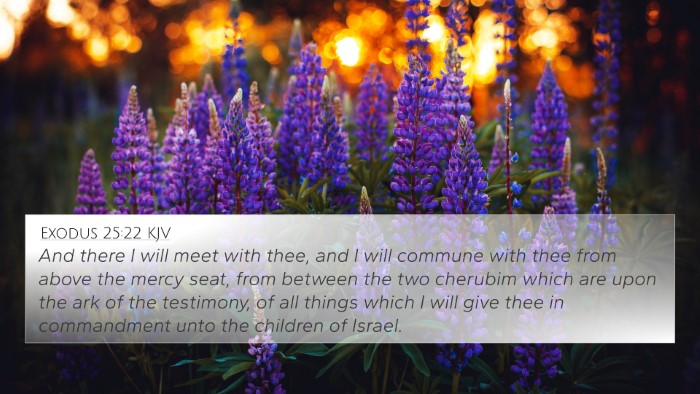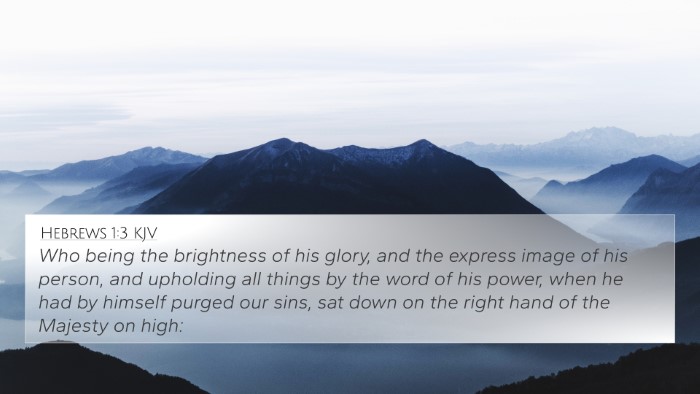Ezekiel 8:4 - Summary and Interpretation
The verse Ezekiel 8:4 states, "And, behold, the glory of the God of Israel was there, according to the vision that I saw in the plain." This verse serves as a pivotal moment in Ezekiel's prophetic vision, emphasizing the presence of God's glory amidst a revelation of deep idolatry in Jerusalem.
Meaning and Context
This passage occurs during Ezekiel’s visionary journey to witness the abominations being committed in Jerusalem. The presence of God's glory indicates His awareness and reaction to the idolatrous practices, which starkly contrast with His holiness.
Insights from Commentators
-
Matthew Henry:
Henry emphasizes that the vision reflects God's omnipresence and the seriousness of Israel's spiritual state. He notes the distinction made by God between His holy presence and the sinful behavior of the people, which brings to light the urgent need for repentance.
-
Albert Barnes:
Barnes points out that this encounter reaffirms God's sovereignty and glory, even amidst judgment. He links this vision to the themes of divine justice and mercy, underscoring that God's presence is a call to acknowledgment and reform rather than a mere display of power.
-
Adam Clarke:
Clarke elaborates on the significance of the phrase “the glory of the God of Israel,” interpreting it as a reminder of the covenant relationship between God and His people. This glory symbolizes God's assurance of His commitment despite the people's unfaithfulness.
Cross References
Ezekiel 8:4 can be connected to several other passages in the Bible that highlight similar themes of God's presence and holiness in contrast to human disobedience.
- Isaiah 6:1-3: Isaiah's vision of the Lord in His glory reinforces the concept of God’s holiness and majesty in the presence of sin.
- Jeremiah 2:13: This verse speaks of Israel forsaking God, echoing the idolatrous behavior observed by Ezekiel.
- Exodus 25:8-22: The instructions for the Tabernacle reveal God's desire to dwell among His people, contrasting their present rebellion.
- Ezekiel 10:4: Following up on the themes in Ezekiel, this passage highlights the movement of God's glory away from the temple due to sin.
- Revelation 21:3: This verse offers a hope of God's ultimate presence with His people, restoring the relationship that sin disrupts.
- Psalm 51:11: David's plea for God not to cast him away mirrors the need for God’s cleansing presence in light of sin.
- Romans 3:23: This New Testament verse reminds us of the universal nature of sin, which heightens the contrast with God's glory.
Understanding the Thematic Connections
The connection between Ezekiel 8:4 and other scriptures reveals a consistent biblical theme: God's pursuit of His people amidst their unfaithfulness and sin. Patterns of idolatry lead to divine revelation of judgment yet always carry the implication of potential restoration through repentance.
This cross-referencing analysis provides tools for deeper Bible study, allowing believers to see the intricacies of Scripture and how various verses interlink to present cohesive theological truths regarding sin, judgment, and divine mercy.
Tools for Bible Cross-Referencing
Studying the Bible through cross-references enriches understanding. Familiarizing oneself with a Bible Concordance allows for easy navigation between related verses. Utilizing methods such as Cross-reference Bible study enhances insight into thematic connections and the broader narrative of Scripture.
Conclusion
In summary, Ezekiel 8:4 is foundational in understanding the nature of God’s glory in the context of human failure. By engaging in Comparative Bible verse analysis and studying its cross-references, one can appreciate the depth of biblical text and the coherence of God’s message throughout Scripture.
